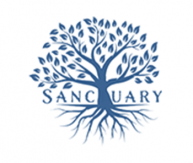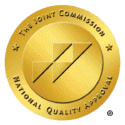
How to Quit Cocaine Safely
Cocaine addiction is characterized by compulsive behaviors, dangerous decisions, and an overall loss of control. The pain and isolation of this disorder can make it difficult to envision a more hopeful future, and they can cloud your ability to understand how to quit cocaine. Thankfully, when you get the professional help you need, you can end your abuse of this destructive substance and establish a foundation for successful lifelong recovery.
What is Cocaine?
Cocaine is a powerful, highly addictive stimulant that is derived from the South American cocoa plant. The drug usually appears as a fine powder or small crystals (which are often referred to as rock or crack).
As a powder, cocaine is typically abused by inhaling it through the nose. The powder may also be dissolved into a solution and injected. People who abuse rock or crack cocaine do so by heating it and inhaling the vapors or by mixing it with tobacco or marijuana and smoking it.
No matter how a person abuses cocaine, doing so exposes them to considerable dangers, including addiction, overdose, and death.
As a stimulant, cocaine triggers the release of dopamine, a naturally occurring brain chemical that is associated with pleasure, motivation, and reward. Someone who has just ingested cocaine may exhibit signs such as the following:
- Enlarged (dilated) pupils
- High body temperature
- Racing heart rate
- Elevated energy levels
- Restlessness and irritability
- Diminished appetite
- Enhanced sensitivity to light, sound, and touch
The effects of cocaine are intense but brief. In most cases, a person may begin to come down from a cocaine high within about 30 minutes of abusing the drug. The brevity of cocaine’s effects often prompt people to abuse the drug multiple times within a short period. This, of course, increases the risk of negative outcomes.
The following signs may indicate that a person’s cocaine abuse has turned into an addiction:
- Prioritizing cocaine use over personal and professional responsibilities
- Spending inordinate amounts of time seeking, acquiring, using, and recovering from cocaine
- Lying to family and friends about their activities and whereabouts
- Unintentional weight loss due to lack of appetite
- Acting with uncharacteristic recklessness or violence
- Finding it impossible to experience joy or pleasure
- Exhibiting symptoms of psychosis or paranoia
Once a person has become addicted, they may need professional help to learn how to quit cocaine.

How Hard is it to Quit Cocaine?
In addition to exhibiting the signs listed in the previous section, people who have become addicted to cocaine will also be affected by tolerance and withdrawal:
- Tolerance means that the person will need to use larger amounts of cocaine to experience the effects they previously achieved with smaller doses.
- Withdrawal refers to the distress that the person will feel if they try to stop using cocaine, or if they are unable to acquire and use it.
The combination of tolerance (needing more of the drug) and withdrawal (suffering if they can’t get the drug) can push a person into a downward spiral of worsening substance abuse. It can also make it extremely difficult for a person to stop using cocaine, especially if they try to do so on their own.
To understand how to quit cocaine, you need to be aware of how your body and mind may react when they are deprived of this drug. Common symptoms of cocaine withdrawal include:
- Extreme fatigue
- Powerful cravings for cocaine
- Anxiety and irritability
- Depression
- Disrupted sleep habits
- Disturbing nightmares
- Paranoia
- Thoughts of suicide
Cocaine withdrawal symptoms can begin to occur within a few hours after a person’s last dose. Symptoms typically achieve peak severity during the first week, though some symptoms can last for a month or longer.
How to Quit Cocaine Safely?
Cocaine withdrawal doesn’t usually involve the intense physical pain that is characteristic of opioid withdrawal. But this doesn’t mean that it is easy to stop using the drug. If you want to know how to quit cocaine in the most effective manner, the answer is detoxification.
Detoxification (or detox) is a short-term treatment program that helps people rid their bodies of cocaine and other addictive substances safely and with minimized distress. For someone who has become addicted to cocaine, enrolling in a detox program offers benefits such as the following:
- Knowing that you can ease your distress by using cocaine again can quickly undermine your efforts to finally stop abusing this drug. While you’re in detox, you will have no access to cocaine. This eliminates what could have been a significant threat to your success.
- While you are in detox, you will be cared for by a team of addiction experts. These professionals are familiar with the onset, severity, and progression of cocaine withdrawal symptoms. They know how your body and mind will react, and they can provide both medical and therapeutic support as needed.
- Once you have completed detox, you can transfer directly into the next phase of your treatment. This allows you to build on the progress you made in detox without the risk of immediate relapse.
- During the post-detox parts of your treatment, you will learn how to handle stress, pressure, and other difficult situations without resorting to cocaine abuse. Therapy can also help you identify and address the concerns that may have contributed to your cocaine use in the first place. The skills you develop in treatment can serve you well in all parts of your life.
Join Our Cocaine Addiction Treatment Center in Southern California
If cocaine addiction has robbed you of the ability to live the life you deserve, the Sanctuary Treatment Center team is here to help. Our facility in Southern California offers a full continuum of customized services for adults who have become addicted to cocaine and other substances. Our treatment options include detoxification, inpatient rehab, and outpatient programming. We also provide detailed aftercare planning to prepare you for long-term success. Contact us today to learn more.


